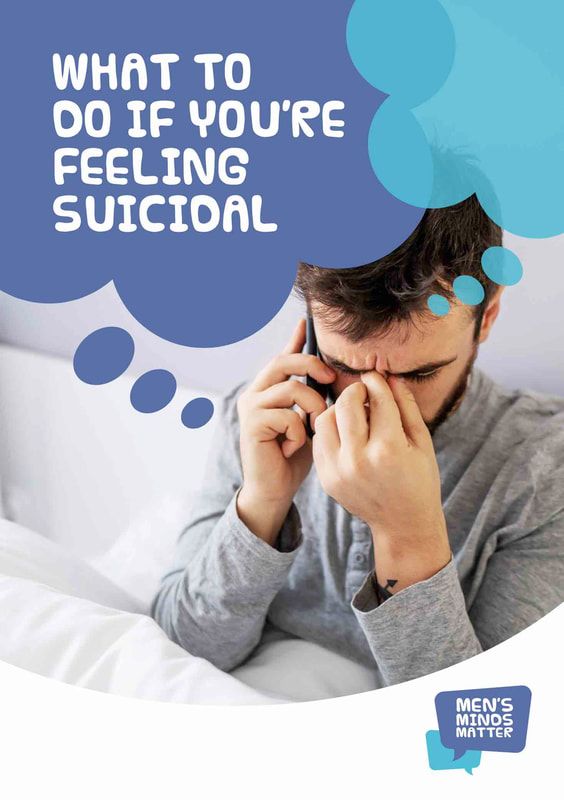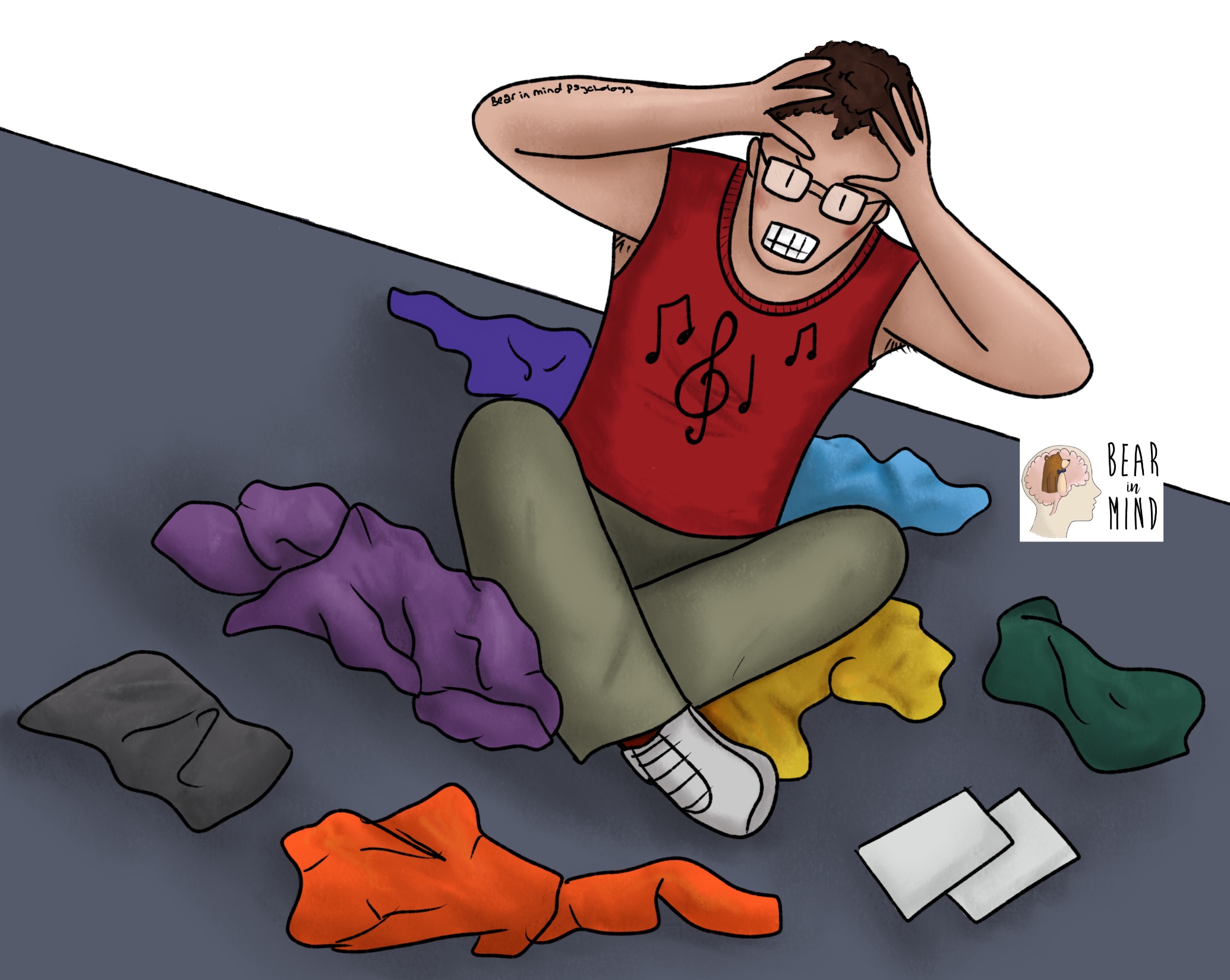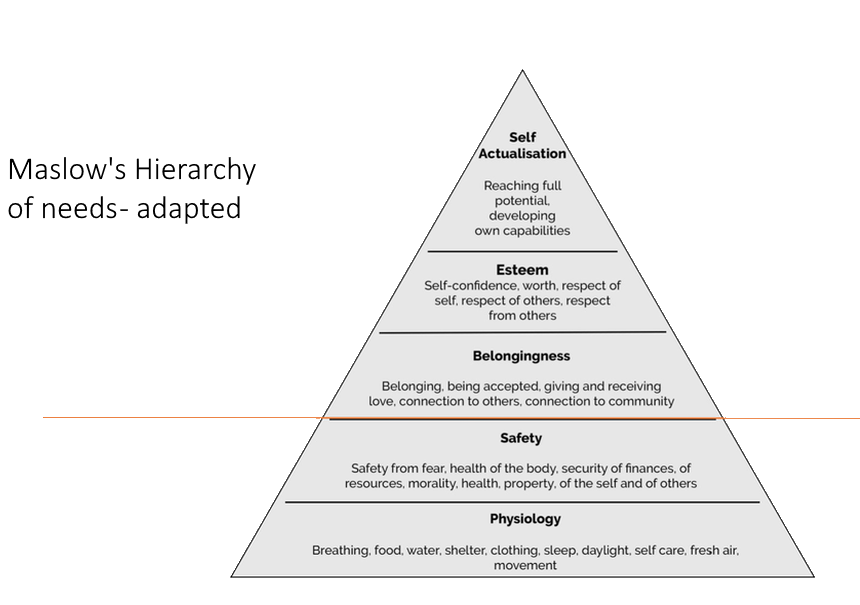Suicidal and need help now?
The main focus is to create some safety. There are services which can help in a suicidal crisis
999 or 111
If you feel that you are in immediate danger of acting or have acted on your suicidal thoughts, don’t hesitate – CALL 999 or 111 or go to your nearest A&E department.
Samaritans
Call the Samaritans on 116 123 who offer emotional support 24-hours a day. They are a listening services but do not advise or tell people what to do. Listen can be enough.
CALM Helpline
Call the CALM Helpline on 0800 58 58 58 (nationwide) or 0808 802 58 58 (London) who offer support to men from 5pm-midnight every day. They do offer advice on what to do.
Tell someone
Tell someone you feel comfortable talking to that you are having suicidal thoughts – send a message asking for their support. Letting others know can help to create safety
Contact your GP
If it is not an immediate emergency but you need advice and support contact your GP. They can link you in with more specialist services
NHS crisis teams
NHS crisis resolution home treatment teams are the NHS service responsible for providing a response to people that are suicidal. These services are accessed via the GP or through A+E.

Get our booklet
PDF booklet downloadable for free or available at £2.50 per booklet.
All proceeds go towards developing more interventions.
Email us if you’d like to order some.
If you are not in immediate danger but are struggling and have suicidal thoughts, below is a resource we hope might help.
First of all, remember that you’re not alone even if it feels like you are. Many people experience thoughts of suicide when they hit a point of crisis. Fortunately, there are many things that can help and people who want to support you.
Sources of support if you are suicidal
Friends and family can be a great source of support and are often the first place we find help. They often have useful ideas but they also might not have the answers. A next step might be to look to people who have been through similar experiences and managed to overcome struggles, contacting a helpline can be helpful, or some people may need to seek help from services, professionals and experts.
Top Tips
Men are less likely to open up and ask for support. If they do, they often ask for help when things are at a point of crisis. Staying silent makes things worse.
Try to think of people in your support network who you could talk to – how might you let them know you’re not feeling good? What signal could you send (text/email)?
If you can’t think of anyone that’s fine and not uncommon. Consider calling a helpline. Speaking anonymously can feel easier. If a helpline feels too much try one of the text support services.
Explore any services or community resources that you might be able to approach, both NHS and beyond. You can find links to services on our website.
Deal with immediate dangers
Beyond your suicidal thoughts, there may be things that require your immediate attention and threaten your safety. For example, domestic violence, risk of homelessness, financial insecurity, and abuse. It’s important that things are in place to mitigate any immediate dangers. Once the immediate risks are dealt with you can then take a step back and reassess what to do next.
How did I get here?
For some people it’s hard to know how they reached the point of considering suicide and they might need the help of others to get to the crux of the problem. For others, particularly men, they may not be fully aware of a problem or be registering problems until they reach crisis point. This can partially account for why they may be more at risk of suicide.
People can easily get lost when they try to work things out in their own minds. If you find yourself unable to find the cause of your problems or an acceptable resolution, and you’re thinking of suicide, it’s essential that you get alternative perspectives. This is one of the reasons why it’s beneficial to start talking. Don’t expect yourself to fix things on your own.
Once we understand the problem(s) we can find ways to resolve them and the distress they are causing.

Crisis events linked to suicide include:
Economic / financial problems
Workplace stress
Threat to self or others
Relationship problems
Physical health problems
Homelessness
Isolation
Domestic violence
Loss of a secure environment
Sleep problems
Loss of self
Bullying (historical / current)
Major life loss
Sudden changes to circumstances
Bereavement
Trauma
Loss of pleasure & enjoyment
Self neglect
Abuse (historical / current)
Vulnarability to harm
Poverty
Drug and alcohol problems
We will all experience crises and will inevitably have to face challenging times in our lives. It’s important to be prepared for how to deal with difficulties when they come, or to be open to exploring new ways of coping so that you have a range of strategies which can protect against suicidal thoughts.
There are things we do in reaction to crises that can be helpful but there are also things we do that unintentionally make the problems worse. Unfortunately, we’ve never been taught the best way to deal with challenges so it’s common for people to struggle more than they need to.
Top Tips
Try to think about what’s happened in your life recently that might have contributed to your current struggles. Write these things down.
Don’t spend too long on this, and if you can’t easily identify causes don’t keep looking. Going over and over things in your mind won’t help.
If you are unable to identify the causes it’s no wonder you can’t find a solution. Time to get some alternative perspectives
Try to do this during daytime waking hours so as not to disturb your precious sleep. When faced with difficult times it’s important to get rest from them.
Problem focused thinking and suicide:
How thought patterns contribute to suicidal ideation
When we experience a crisis, your mind will want to stay focused on the problem, searching for a solution. As humans, we’re designed to give attention to threatening situations over pleasurable experiences in order to stay alive. But in some cases, this strategy can actually make the problem worse.
Without a resolution, the uncomfortable emotions linked to our difficulties become more intense, a search for a solution continues, and a distressing cycle is created. When we get stuck in this cycle, we can feel hopeless, helpless, trapped and defeated. Once here, it can feel like the walls are closing in, desperately wanting a way out. Without an acceptable solution, thoughts of taking suicide can emerge as they provide the escape from the discomfort of problem focused thinking.
When our thoughts get stuck on a problem at the expense of everything else we move further into despair. Once this gathers momentum, it’s hard to step away. Getting trapped in these patterns stops you thinking clearly and cognitive biases lead to us seeing only the worst or blind us to any positives. Problem-focused thought can prevent you from reaching your goals, makes it hard to concentrate, prevent you from sleeping and increase emotional distress and pai

Thinking as our go to strategy for solving problems
The mind’s natural response to problems is to think about how to resolve them. This is our go to strategy and because it usually works we believe that thinking will eventually solve the problem. This is not always the case and being stuck in these ways of thinking without finding solutions creates discomfort and confusion. It becomes a problem due to the negative impact it has on your mood. But, with the right tools you can learn to detach from problem focused thinking, give the mind a welcome rest and reboot the system so your mind starts seeing things in a more balanced way again.
Detaching from problem focused thinking
The key is to find moments when you can divert your attention away from the problems you face. This is hard to do because your mind wants to focus on them but it’s essential in giving the mind a rest and keeping it functioning well. This can be hard to do during a suicidal crisis because our minds our desperately wanting to find a way to safety.
Distraction is a good technique if your thoughts are fused with problems. However, there are more technical ways of achieving relief through practices like mindfulness and attention training that have longer lasting benefits.
Top Tips if Suicidal
Check out our page on distraction. It’s a great technique in times of crisis to help get a break from an overactive problem focused mind.
If it feels possible, begin to explore mindfulness as a practice. It can be particularly hard to do during difficult times but it a more effective long term strategy. Remember to come back to it once things have settled.
Emotional shutdown and suicide
How over-controlling emotions contributes to depressive withdrawal and isolation
For some people a suicidal crisis can provoke such a powerful response that they shutdown and numb feelings. Some people may have learnt to shut out emotions from an early age, so will have less awareness of their emotional experience generally.
Shutting down feelings when they become too intense offers relief from emotional distress and pain. However, we can’t selectively shut out feelings. If we shut down one, we shut them all down, including feelings of joy and connectedness. Essentially we lose our enjoyment and pleasure, our sense of satisfaction and achievement, and our general connection with life.
We are often told from an early age that emotions are bad and men in particular are socialised to disconnect from their feelings. But this compromises our capacity to use feelings to our benefit and means we risk not noticing when problems arise. Shutting down emotions also leads to emotional isolation and lifelong loneliness which can be very painful. Men are also more likely to numb through drugs, alcohol, sex, gambling, and other behaviours that make the problem worse. Many people who feel suicidal also feel depressed.
Essentially, we need to feel – but not too much!
Tops tips for emotional shutdown
Learn techniques to manage emotional distress that do not involve numbing.
Build up your emotional vocabulary by learning about the messages different emotions bring.
Try to express to others how you are feeling. You can do this after an event if it’s not possible at the time.
Try to tune into how you are experiencing the world through your felt experiences and your senses
Do not withdraw and isolate for too long or shutdown too much. It’s okay to back away from things but it’s important to keep up a basic routine.
Emotion and suicide
Emotions are at the heart of suicidal thought, planning and intention to act
We know something is wrong because we feel it, but we don’t know we have a problem if we can’t feel things!
In our experience, not being in touch with our emotions, or feeling too much, drives suicidal thoughts, plans and intentions to act on them. It’s not necessarily the problems themselves that people are trying to escape from when they consider suicide, but the way they are feeling or the absence of feelings. If you find yourself fighting or wanting to escape your feelings, you’re going to experience problems. Similarly, if you’ve shut your feelings down or learnt to shut them out, you’re going to experience problems.
When emotions become painful
For many people suicidal crises are accompanied with intense emotional responses. These feelings can persist and become more intense as we struggle to resolve them. Constantly doing battle with powerful emotions can lead to psychological problems and escalating emotional distress and pain. If things reach this point, your emotions become part of the problem and the difficulties managing leads to emotions being seen as a threat. This leads to more anxiety and fear.
Turn down the volume on emotions
If you’re struggling with strong, intense and unabating emotions, it’s time to start focusing on turning down the volume on them. Too much emotion impairs our mind’s capacity to function effectively, making it less likely that we’ll work through our problems. Emotions are designed to guide us, not harm us, and too much emotion will send us down the wrong path – we are more likely to react on impulse, make mistakes, and do things we might later regret.

Top tips
There are a number of techniques you can use to soothe emotions. Our favourite is soothing rhythm breathing which can be used both in the moment and as a regular practice.
You could also try meditations, mindfulness practices, relaxation strategies, grounding techniques, progressive muscle relaxation, intense exercise, or TIPP skills.
It’s really hard to stay calm in times of crisis, so you may well find these practices difficult and that’s okay.
If sitting practices feel too much, try doing some deep breathing with movement. The more you can introduce deep breathing the better.
Get back to basics
Suicidal crises can consume your whole life, leaving little room for anything else.
When your mind and body are constantly trying to deal with threats to your wellbeing, your energy levels deplete, your appetite can be reduced, your sleep can become disrupted, and contact with other people can feel like too much effort.
When you don’t feel able to do small tasks that were once easy, take it slowly. Trying to power on will end up leading to more feelings of frustration and hopelessness when you simply can’t do what you expect of yourself. The most important thing right now is accepting what you can and cannot do and adapting to this.
Laying the right foundations for functioning
That might feel tough to accept, but rather than trying to function as normal, you might need to return to the basics. Building and maintaining the right foundations is key to refocusing and resetting when we feel lost or trapped. With strong foundations, other things in life will become easier to manage.
Everyone has certain things they need to do to be able to function effectively, like eating, drinking water, moving around, looking after our self care, remaining in contact with the outside world and sleeping well. These are all essential needs which are often compromised during difficult times. People often forget to do them when there are bigger issues around, but getting these essential things right can help to create solid foundations to get through difficult times.
Focus on the fundamentals
The concept of different levels of needs was introduced by psychologist Abraham Maslow and is a helpful reminder of how to build the right foundations for wellbeing.

In a suicidal crisis, it’s important that you get the basics right first. You’ll struggle to maintain functioning above the level of safety because crises in essence disrupt at this level – connecting with others will be difficult, feeling good about ourselves may not be easy, and functioning at a high level will be impaired, until the crisis resolves.
Strip things right back, do the essentials and stick with it. Don’t expect too much from yourself and allow yourself to give a little less in other areas of your life until the crisis has passed. You do not have endless resources.
Actions which can unintentionally make problems worse
In a suicidal crisis, most of your behaviour will be focused on trying to deal with the problem until it’s fixed, or in the absence of a fix you many instinctively feel like withdrawing or avoiding things. Below are some instinctual responses which can unintentionally make problems worse.
Avoidance
When you feel under threat, your body’s natural response is to fight, run or freeze. While these strategies might help if you’re under attack from a predator, they are less useful against modern-day threats like workplace stress or relationship problems. Another natural response to feeling anxious about something is to avoid it. But avoidance as a long-term strategy rarely works out and contributes to fears that get in the way of us being able to lead the lives we want. Facing our fears (if they are not life threatening) is important for new learning.
Withdrawal and isolation
One of the most common responses we see during times of crisis is people withdrawing from their usual activities and isolating themselves from their relationships. This is a common response to loss or feeling lost and defeated. If you feel like you’ve lost motivation or interest in things that you once enjoyed, it can feel confusing and frustrating. Withdrawing and isolating can feel like the right thing to do and it is an attempt to preserve ourselves. However, it’s the main factor contributing to depressed mood, particularly when people withdraw too far.
Hitting out
In anger, people can hit out at others and the world around them. It causes all sorts of problems – both during childhood and later life. The moment people get angry, aggressive or violent, the reasons for their reactions get lost and the focus is on the angry person being the problem. This can lead to a further sense of injustice, misunderstanding and anger. Aggression and violence is rarely called for and it’s important to not act in ways that can cause harm to others.
Powering on
When people are under pressure and have stressors building up, they may try to power through. This might involve trying to do more to keep up, expecting themselves to be able to get everything done, continuing to try to impress others, or neglecting their need to rest. While it’s possible to sometimes power on through, over long or intense periods it can lead to people burning out.
It’s important to listen to how you are feeling and respond in ways that do amplify feeling or feed into ideas of ending our lives. If you feel things have got on top of you and you don’t know what to do, are constantly focused on problems, feel trapped, helpless, or feel like giving up then it’s time to get some help. Your life matters and difficult times do pass.
